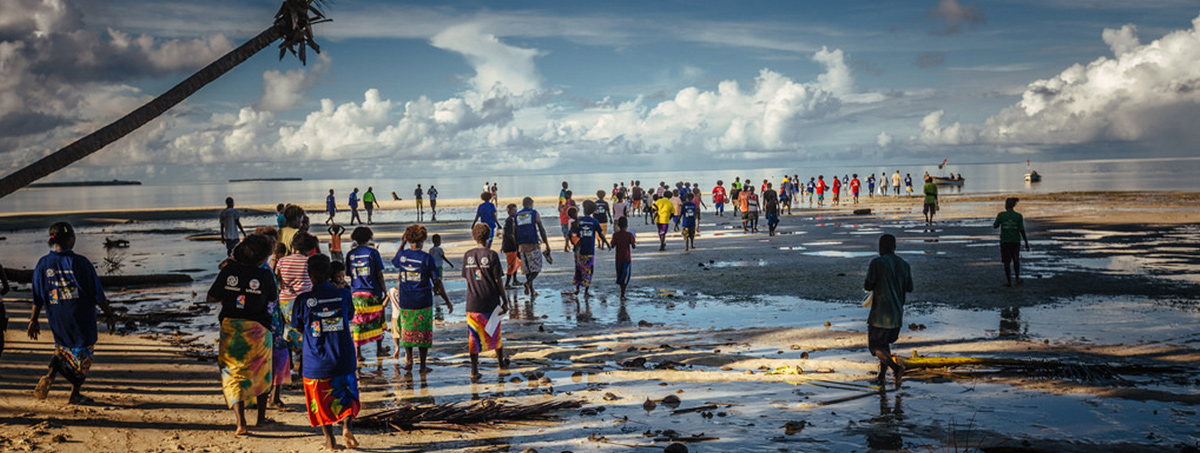Today, over 258 million migrants live outside their country of origin across the world and it is anticipated that climate change will increase this number. Persistent flooding, recurrent droughts or sea-level rise that make land uninhabitable are all potential drivers of migration that will be exacerbated by climate change. In advance of the adoption of the Global Compact in Marrakech, delegates at COP24 in Katowice, Poland, will address the issue of climate change migration. In the coming days, delegates will discuss a key set of recommendations that aim to help countries cope with the displacement of people as a result of climate change impacts.
The recommendations by the Task Force on Displacement will be presented to the COP on Saturday, December 8th. The Task Force is part of the Executive Committee of the Warsaw International Mechanism on loss and damage under the UNFCCC. The Foundation welcomed the report which centred on human rights and the principles of climate justice in particular by;
Recogniz[ing] displacement in both sudden and slow onset events as a development, humanitarian and human rights challenge that requires increased investments in understanding risks and impacts in local contexts and in reducing vulnerability and exposure.
Moreover it recommended that Parties;
Adopt and implement national and subnational legislation, policies, and strategies recognizing the importance of integrated approaches to avert, minimize, and address displacement related to adverse impacts of climate change and issues around human mobility, taking into consideration human rights and other relevant international standards, and with interministerial and cross-sectoral inputs, with the participation of relevant stakeholders;
Mary Robinson, speaking on the importance of the Task Force on Displacement’s recommendations, said “If we are going to ensure climate justice is done, then the global community must work together to ensure that those most vulnerable to the impacts of climate change are protected. Nobody leaves their home unless they have no other option. When the impacts of climate change bring an individual or community to this level of distress, the global community must be willing to step in and support them.”
On Monday, December 10th, world leaders will convene in Marrakech, Morocco for the International Conference to Adopt the Global Compact for Safe, Orderly and Regular Migration. The Global Compact looks to set out a common, comprehensive approach to international migration, promoting cooperation between states and strengthening measures protect regular migration pathways, tackle irregular migration, and to ensure the human rights of migrants.
Importantly, the text of the Global Compact to be adopted next Monday recognises that climate change is a driver of migration and due consideration needs to be given to protect the rights of those people who are displaced by the impacts of climate change.
Related Links


